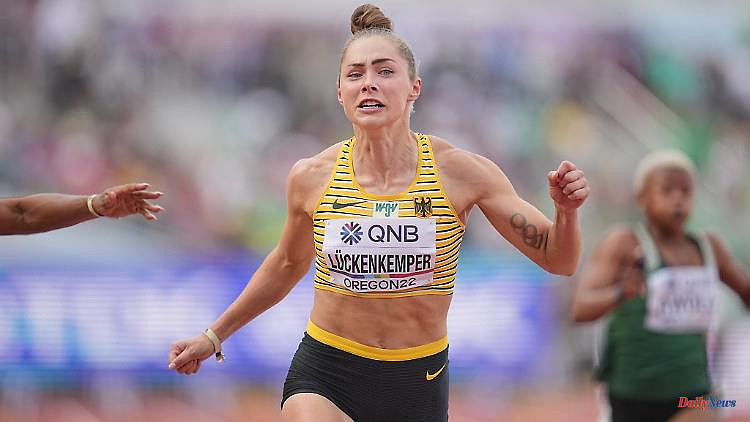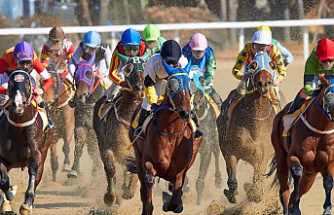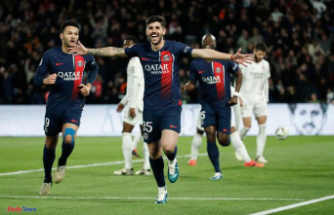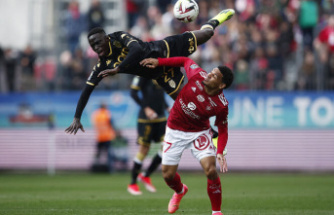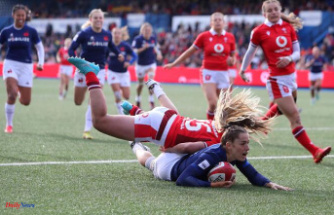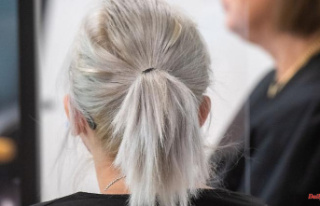Sprint star Gina Lückenkemper is angry, long jump queen Malaika Mihambo agrees with her: The sport promotion is not least after the bad World Cup performance of the German athletes in the criticism. However, the problems in sporting Germany lie deeper. What can help?
Gina Lückenkemper was in defense mode and Malaika Mihambo demonstratively jumped to her side. "I see it in a similar way to Gina," said the newly crowned long jump world champion when asked about German top-level sports funding: "If you're good, you'll get good support, but as long as you're on the way there, it is it difficult."
After the historically poor performance at the World Championships with only two medals for the German Athletics Association (DLV), Lückenkemper criticized what she believed to be the lack of financial support for the athletes. "We don't really have a subsidy system in Germany, but rather a reward system," wrote the 25-year-old on Instagram - apparently hitting a sore point.
In any case, the reaction was immediate. The DLV ordered its sprinter in the person of Ronald Stein, National Sprint Coach, for an interview. In this, "the key points of German sports funding were explained to her again," Stein described on lichtathletik.de. And: Lückenkemper was not "about criticism of the DLV, but about the importance of sport in general," said the DLV coach on behalf of him.
In fact, the discussion about promoting elite sport can only be conducted in a larger context. The federal government, which has so far been solely responsible for funding, has been trying to combat the declining quality and relevance of German top-class sport since 2016 with a reform. But there are fewer and fewer talents to be promoted. The reasons for the descent lie deeper.
"We're just not a sports country," said national coach Martina Voss-Tecklenburg in an interview before the European Football Championship ended on Sunday, identifying domestic problems in popular sport: "We're the first at school to cut back on physical education classes. Indoor pools are closed, gyms are needed for other things, and sports facilities were closed for months during the Corona crisis." For Mihambo, too, strengthening the base is essential for a more successful future. "That is crucial. Because only when there is a broad basis can a broad top grow from it," said the 28-year-old. However, the way to get there has yet to be found.
A movement summit is to take place later this year. According to the wishes of the German Olympic Sports Confederation (DOSB), Chancellor Olaf Scholz should invite you to do so in autumn. There are two core questions: Is sport being given greater importance at federal level? And: What is the value of German competitive sport?
You have to "completely rethink and question everything" in Germany, appealed rowing world champion Oliver Zeidler: "The claim of society is always that we should get as many medals as possible." But "without effort" you get "nothing". The promotion of elite sport is under scrutiny. According to the "Frankfurter Allgemeine Zeitung", Interior Minister Nancy Faeser announced a public hearing at the DOSB Parliamentary Evening in June. "We're doing everything we can to focus on the athletes," said Faeser.
According to DOSB board member Dirk Schimmelpfennig, the umbrella organization of German sports also has this goal, which welcomed the critical statements made by its athletes. "The committed statements come at the right time," said Schimmelpfennig. After the summer and winter games in Tokyo and Beijing, the DOSB reflected on the promotion of top-level sport "very broadly, intensively and critically". The athletes, he assured, are "involved" in this process.

